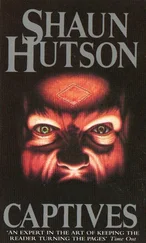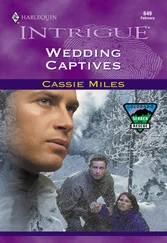Norman Manea - Captives
Здесь есть возможность читать онлайн «Norman Manea - Captives» весь текст электронной книги совершенно бесплатно (целиком полную версию без сокращений). В некоторых случаях можно слушать аудио, скачать через торрент в формате fb2 и присутствует краткое содержание. Год выпуска: 2014, Издательство: New Directions, Жанр: Современная проза, на английском языке. Описание произведения, (предисловие) а так же отзывы посетителей доступны на портале библиотеки ЛибКат.
- Название:Captives
- Автор:
- Издательство:New Directions
- Жанр:
- Год:2014
- ISBN:нет данных
- Рейтинг книги:3 / 5. Голосов: 1
-
Избранное:Добавить в избранное
- Отзывы:
-
Ваша оценка:
- 60
- 1
- 2
- 3
- 4
- 5
Captives: краткое содержание, описание и аннотация
Предлагаем к чтению аннотацию, описание, краткое содержание или предисловие (зависит от того, что написал сам автор книги «Captives»). Если вы не нашли необходимую информацию о книге — напишите в комментариях, мы постараемся отыскать её.
Captives
This is a moving account of a country shaken by communism and anti-Semitism and haunted by recent atrocities, from "a distinguished writer whose vision of totalitarianism is close to Kafka's cloudy menace, universal yet internalized" (Richard Eder,
).
Captives — читать онлайн бесплатно полную книгу (весь текст) целиком
Ниже представлен текст книги, разбитый по страницам. Система сохранения места последней прочитанной страницы, позволяет с удобством читать онлайн бесплатно книгу «Captives», без необходимости каждый раз заново искать на чём Вы остановились. Поставьте закладку, и сможете в любой момент перейти на страницу, на которой закончили чтение.
Интервал:
Закладка:
— Are you looking for someone?
Following me from the dream where I couldn’t reach her, the tall, thin girl wore her hair like a clod of black earth gathered on top of her head. She hid her impatient eyes. My classmate turned toward me again — it seemed we both knew how the other would gesture or reply, and yet we still made each gesture and reply. He became animated while talking about girls. Our female classmates were locked away in school uniforms, and they’d probably condemn us to chastity for a long time to come.
— We should marry quickly if we want to accomplish something. Otherwise, we’ll fall right into the hands of the first coquette.
It was the moment to look him in the eye. I had to tell him what I thought, which is to say, I had to distort my words and phrases in such a way that it would seem I was lying or posing. Then the true thought would sink and disappear under a surplus of overly complicated concealments. I would wrap my thoughts in affected, precious phrases. I would look him straight in the eye, as I hadn’t done a moment ago when I was replaying my speech for him with my eyes fixed on some distant angle that sight could never reach.
— I hope eventually to find myself in the same office with a girl. To get used to her way of walking, her face, so that she becomes necessary to me, so that she understands my silences, my preferences, and then a tacit engagement will arise between us — gradually and increasingly intense, and everything will be implied in our ordinary movements, so that there won’t be any need for words. If it works out this way, one day I’ll buy two movie tickets and before saying goodnight, on the threshold I’ll ask her to stay with me forever. I hope she’ll agree with a simple nod of the head.
He began to smile, as I had expected. I was accepting everything ass-backward, without caring, asleep on my shelf.
— You should study literature. In reality, things are simpler or more complicated — or in any case, more random. Seriously, you should get started on a literary career.
He was smiling, as I had expected. He had pronounced the expected words.
— Literature? It’s only worth writing on walls anymore.
The sentence had to be finished with a slap on the back, and borrowing a gesture of his that he didn’t have the courage to make, but which he’d foreshadowed in the complicated ballet of his courtly gestures, I gave him a friendly slap on the back — the ultimate sign of acceptance and trust, and particularly of encouragement to embark upon his long and victorious road, which I had played a small part in guiding him toward.
I had decided it would be our last conversation as high-school students, and it was.
• • •
I had made friends with myself in the end. Without hostility, I kept an eye on my movements. They were harmonious, to all appearances. A faithful, amazed attendant on my own steps, I counted them from a pace behind, overjoyed they were mine, with their decisive stamp on the damp roadway, successfully traversing conventions of traffic, proficiently executing whatever bounds, twists, or reversals the unforeseen required. I advanced along the serpentines of various ages, an obedient robot, subject to hours, cities, and people, the brother who indifferently regarded his blind twin walking a step or an instant ahead. Nothing was happening in the game of adjournment, acrimony, and anesthesia. Being neither one nor the other, I had acquired the freedom to be sometimes one, sometimes the other — the one who remained the same in all operations, the “invariant” who had been provided and who had lived long ago in some other time by someone else — or never, by anyone. And so I advanced monotonously along uniform spirals and uniform hours, alongside uniform people heading toward uniform cities, submissive, too, like the one beside me — the double, my indifferent twin. Opportune, prompt as the waters of Lethe, forgetfulness would quickly erase everything, and the whole business would start over again, like yesterday, like tomorrow — whenever, or at no time.
With my eye screwed into the back of his neck, I rode on the young corpse’s back. The flesh was as flaccid as his arms. I accompanied all his staggering and his worn-out, falsified emotions. I fell in step with the suave, transparent twin who would agitate himself like a frenetic shadow on glass, ready to shatter. I tried to be a magnetic coating, able to intercept emotions, aspirate thoughts, able to infect his moods and ambitions, to concentrate and preserve myself in the depth, happy that nothing could be retained. All things happened in a watery, slippery way, or perhaps they had evaporated and were leftover bits of dust, unstable as the blade of a momentary wind.
I saw him — myself — pass through preliminary circles, as through Purgatory: I followed him into all the traps opened to him by her, the third person , the nameless, the only one that had a name — for the third person could have had any name, which is also to say no name at all — the bondswoman of his imagination, docile, foreign, and free of selfhood, cringing in grotesque little lying revolts, pointless attempts to increase the areas of irresponsibility in which “ he ” would transfer himself through her, the third person. I felt his body tested, convulsed, and electrically shocked by red spirals about to become heat and movement. He stopped on the spot, amazed by the intensity of his confrontation with the second person (“ you ”), who was flinging her hair over his eyes — his orbits — which was destiny coming to choose him, to test him. And with him I collapsed exhausted in the circle of such rings, in an ultimate vortex, reached only by the wind, the final boundary, the inferno of the interlocutor.
We were at the edge of a fortress with thick, high walls. Before the entrance, a massive gable, curved like a shield. We saw every detail of those walls and the colors of the morning that found us at the gates — the dimension, the form, and the color of the stones, the rattling of the cumbersome green metal gates, the road that carried us up its serpentine curves. I heard the words as if they were my own: the oblong hole that remained in the wall closely resembled a crocodile. And indeed, over time, the hole had shaped itself oddly, almost like a prank, into a long animal with short, barely visible paws and a wide, snarling snout. The decayed stones had grown jagged, like the greedy creature’s zigzagged teeth. “He” spoke haltingly, and “I” heard his words in myself, near every curve of the hole that seemed specially designed to embody the ferocious reptile’s shape.
I and myself circled the fortress for several hours. Then we wandered the hills. We were setting out for the Big City in a few days. We listened to the undulations of our thoughts and saw the heavy green gate and the curious hole in the fortress wall once more. It was necessary to interrupt him, to interrupt myself, to contradict myself, to contradict him. The wall wasn’t curved like a shield, but straight and sloped: the frustum of a square pyramid. It wasn’t made of stone, but of brick worn by rain. The images had blurred. The memories: uncontrollable. I understood then that it had been a necessary occurrence: we could no longer unite in one being. We needed to remain separate though inseparable, halves. It would never be possible to be near him, and even less in him. Something definitive in me — forgetfulness — accomplished the wonder of our doubling.
The hole in the wall had not existed: it was a chimera, or so I thought. I had turned pale and listened to him describing the details: horrified, he gradually convinced himself that what I had seen was a spot of whitewash left by a brush. Bent over his back, suddenly hunched with age, I felt that he needed some verification. He wanted to return to that place. And, in truth, we really would return there later, but after many years, after uncertainty had already torn us apart. We gazed at the walls of the former fortress. Above the green gates rose the frustum of a truncated pyramid made of brick. He looked at the spot of whitewash on the wall. The hairs of the brush had created a crocodile. Our hands extended. Cold, clammy palms slapped our foreheads. If there hadn’t been a hubbub of voices nearby, he might have collapsed. He didn’t have the strength to turn in their direction. Panic had made him faint. He was devastated, pale as death. His unraveled mind let any kind of mental aberration through its serpentine coils. He was terrified by how easy it was to fall prey to imagined mishaps, and so was I.
Читать дальшеИнтервал:
Закладка:
Похожие книги на «Captives»
Представляем Вашему вниманию похожие книги на «Captives» списком для выбора. Мы отобрали схожую по названию и смыслу литературу в надежде предоставить читателям больше вариантов отыскать новые, интересные, ещё непрочитанные произведения.
Обсуждение, отзывы о книге «Captives» и просто собственные мнения читателей. Оставьте ваши комментарии, напишите, что Вы думаете о произведении, его смысле или главных героях. Укажите что конкретно понравилось, а что нет, и почему Вы так считаете.












